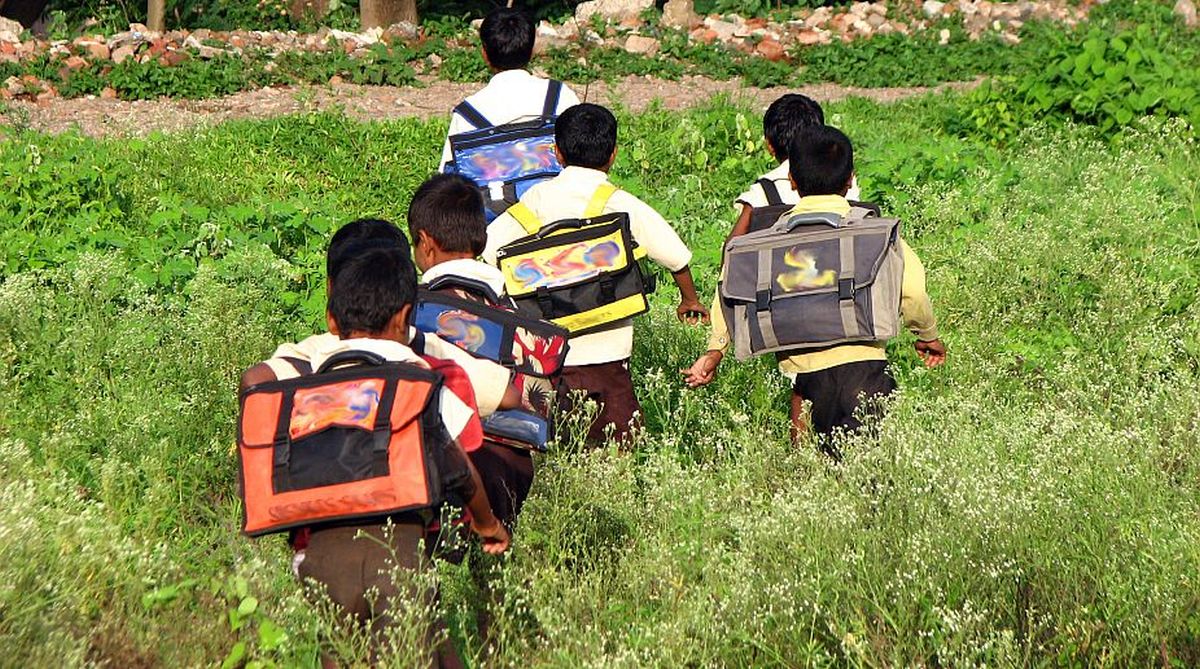PM to distribute over 65 lakh property cards to owners under SVAMITVA Scheme
According to the Prime Minister’s Office (PMO), Modi will distribute the property cards at around 12:30 pm.

Representational Image:(PHOTO: Getty Images)
The Union HRD ministry’s decision to drastically reduce the maximum weight of school bags in institutions across the country is eminently rational, most particularly for the benefit of children in the kindergarten. Its letter to states calls for urgent reflection before the next session gets under way not the least because the acquisition of knowledge from Class One to Ten is not directly proportional to the size and weight of the bag.
As often as not, it can be an almost insufferable burden on a five-year-old, specifically the spine structure as doctors would affirm. The issue is no less important than the reshuffle of the Board of Governors and heads of schools run by the CNI (Church of North India), as contemplated by Kolkata’s Bishop’s House. Such changes cannot ipso facto facilitate the search of learning. It is one thing to revamp the internal administration; quite another to take care of the welfare of school children.
Advertisement
The fact that several states and Union Territories have already started implementing the HRD ministry’s suggestions inspires confidence. A follow-through is, therefore, imperative in West Bengal and covering all schools across-the-board. The Right to Education covers all. It thus comes about that the weight of the school bag has been stipulated as 1.5 kg for Classes 1 and 2, and for Class Ten it must not “exceed 5 kg”.
Advertisement
Two kg is the norm for Classes 3 to 5; 4 kg for the middle-school years of Classes 6 and 7, and 4.5 kg for Classes 8 and 9. It is more than obvious that the tabulation has been thoughtfully calibrated and does reflect the progressive pressure of studies as the child graduates to the higher ranges of school education, with or without annual exams up to a certain level. Not wholly unrelated is the decision to scrap homework for the first two years of schooling, during which time no subject aside from language and mathematics will be taught.
Whether language denotes English or the local language or both ~ as it should be ~ has been left delightfully vague. The order would have been more specific had it mentioned “simple arithmetic” instead of the broad discipline of mathematics. The ministry has seemingly been driven by the compulsion to relieve pressure, as was Jyoti Basu when his government scrapped the teaching of English at the primary level, a vacuous decision that has affected an entire generation.
Pressure can scarcely be minimised by dropping essential subjects. The curricula for Classes 3 to 5 is environmental science, mathematics and languages. The scope is rather too limited, excluding English literature, the humanities, and general science. It is hard not to wonder whether the curricula has been formulated in consultation with academics. Or has it been drafted with a stroke of the bureaucratic pen?
Advertisement